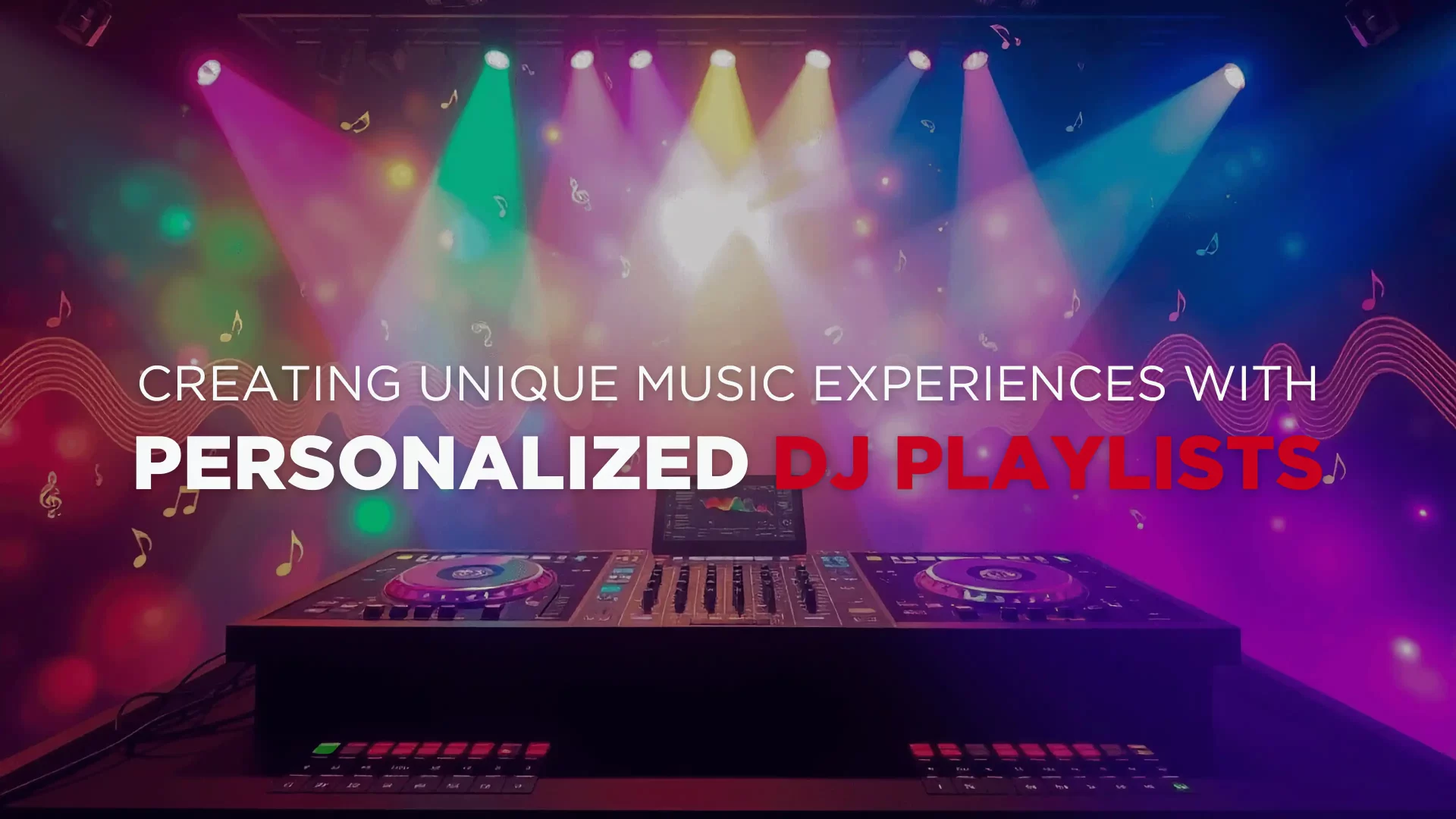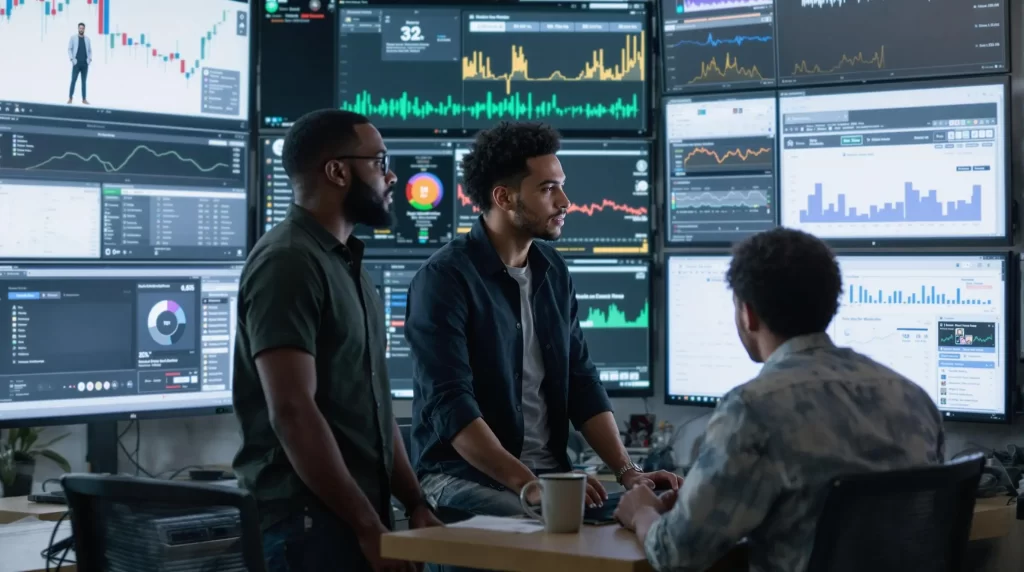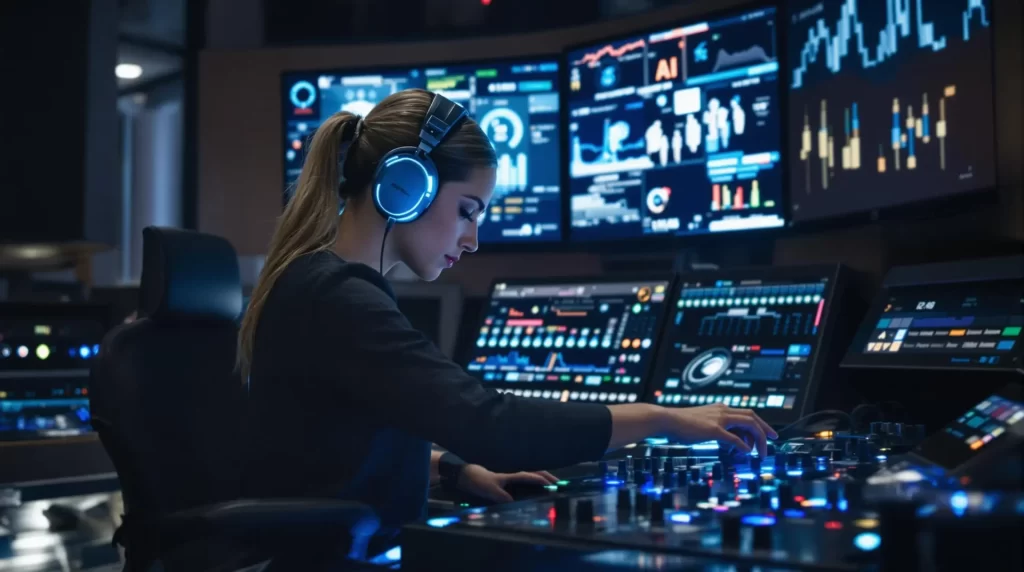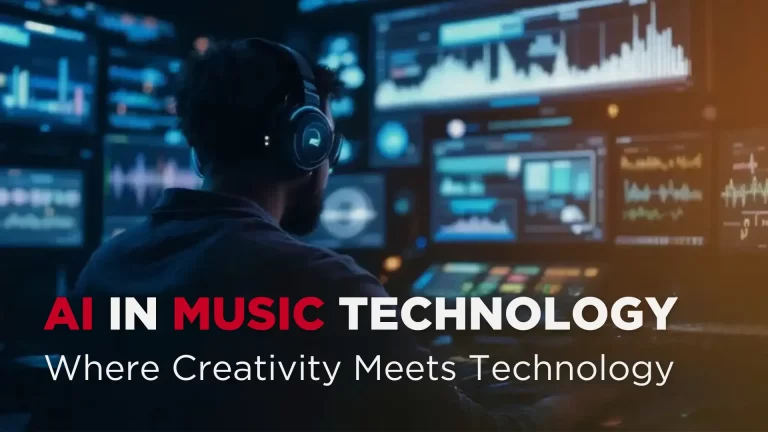Personalized DJ Playlists: How Machine Learning Is Changing the Game

Scott Evans DJ is supported by its readers. If you purchase through any link on the site, we may earn a commission. Learn more
Introduction
The way we consume music has changed dramatically, thanks to using machine learning for personalized DJ playlists. This technology allows for an unprecedented level of personalization, transforming how listeners discover and enjoy music.
- Impact of machine learning: Algorithms analyze vast datasets to create unique listening experiences tailored to individual preferences.
- Significance of personalized DJ playlists: In an era saturated with content, these playlists foster deeper emotional connections and enhance user engagement.
A prime example is Spotify, which has effectively used this technology. With its innovative features like Discover Weekly and AI DJ, Spotify shows how machine learning in music can completely change playlist curation. As the platform grows, it opens doors for more immersive and customized musical experiences.
Understanding Machine Learning in Music Personalization
Machine learning is a type of artificial intelligence that allows systems to learn from data and make predictions or decisions without being explicitly programmed. In the case of music curation, this technology is changing the way Personalized DJ Playlists are created and customized for listeners.
Key aspects of machine learning in music personalization include:
- Data Analysis: Algorithms analyze large amounts of user data, such as listening habits, genre preferences, and even factors like mood or time of day. This analysis helps platforms understand individual tastes better.
- Pattern Recognition: Machine learning algorithms can find patterns in user behavior. For instance, if a user often listens to upbeat house tracks on Friday evenings, the system picks up on this trend and adjusts recommendations accordingly.
- Feedback Loops: As users interact with curated playlists, their choices provide immediate feedback. This data goes back into the algorithms, improving future suggestions based on what the user likes most.
The outcome is a personalized experience where music feels specifically made for each listener. Platforms like Spotify use these machine-learning methods not only to recommend songs but also to create Personalized DJ Playlists that connect with users emotionally. By using algorithms in music, services greatly improve user engagement and satisfaction.
The Role of User Data in Shaping Personalized DJ Playlists

Personalized DJ playlists rely heavily on user data, forming the backbone of music curation. Key types of data collected include:
- User Listening Habits: Tracking how often a user listens to specific tracks, genres, or artists reveals patterns that inform playlist creation.
- Music Preferences: This includes likes and dislikes, favorite genres, and skip rates. Such preferences help algorithms refine their understanding of what resonates with the listener.
The significance of this data cannot be overstated. By analyzing listening habits and preferences, platforms like Spotify can tailor Personalized DJ Playlists that not only reflect individual tastes but also enhance user engagement. For instance, if a user frequently listens to upbeat house tracks during workouts, the algorithm will prioritize similar songs for future playlists.
This data-driven approach ensures that every playlist feels uniquely curated. It creates an immersive experience where users discover new tracks aligned with their established preferences while also introducing them to emerging artists within their favored genres. The result is a dynamic and engaging listening experience that evolves alongside the user’s changing musical landscape.
Key Machine Learning Features Driving Spotify’s Personalized Playlists
The Discover Weekly feature stands out as a hallmark of Spotify’s innovation in personalized playlists. Each week, it delivers a curated selection of 30 songs tailored specifically to individual user tastes. This personalization hinges on sophisticated algorithms that analyze:
- Listening history: Previous tracks and artists that users frequently enjoy.
- Similar user behavior: Patterns identified from users with comparable listening habits.
By leveraging machine learning for personalized DJ playlists, Discover Weekly continuously refines its recommendations. It taps into not just what you listen to but also when and how often you engage with specific genres or artists.
This dynamic approach ensures that each playlist evolves to reflect changes in user preferences, creating an engaging and relevant musical journey. Users eagerly anticipate their weekly refresh of Personalized DJ Playlists, a testament to the power of data-driven curation in enhancing the overall listening experience.
Exploring the AI DJ Feature: A New Era of Playlist Curation

The AI DJ feature represents a significant leap in how music is curated and experienced. By using generative AI in music, Spotify takes personalized playlists to a whole new level. Here’s a closer look at what it can do:
1. Dynamic Playlist Curation
The AI DJ intelligently selects tracks based on user preferences, mood, and context. It can create seamless listening experiences that resonate with listeners at any moment.
2. Voice Narration
This feature adds a human touch to the digital experience. The AI DJ provides engaging commentary, introducing songs and sharing insights about artists and genres. This narrative element enhances listener engagement, making music discovery feel more intimate.
3. Personalized Interactions
Users interact with the AI DJ as if conversing with a friend who knows their taste in music. It can suggest new releases or hidden gems, enriching the listening journey while keeping it fresh and exciting.
The integration of the AI DJ feature shows Spotify’s dedication to pushing boundaries in music personalization. The focus on user interaction and tailored experiences demonstrates the platform’s innovative approach to connecting listeners with their favorite sounds. As technology evolves, so does the potential for even deeper engagement through personalized playlists.
Continuous Improvement through Reinforcement Learning: Adapting to Your Evolving Tastes
Reinforcement learning is a powerful component in Spotify’s personalization strategy, allowing the platform to adapt its Personalized DJ Playlists continuously. This sophisticated approach involves algorithms that learn from user interactions, creating a feedback loop that refines recommendations based on real-time behaviors.
Key aspects of reinforcement learning include:
- User Feedback Integration: Each interaction with a playlist—whether skipping, saving, or replaying a song—provides critical data. This input is analyzed to update the algorithm’s understanding of user preferences.
- Dynamic Adjustments: As tastes evolve over time, reinforcement learning enables Spotify to introduce music that aligns with users’ current moods and preferences. This adaptability ensures that playlists remain fresh and engaging.
- Personalized Journey: Users experience tailored recommendations that reflect their unique listening history. The system recognizes shifts in habits, accommodating seasonal changes or new genres of interest.
By leveraging reinforcement learning, Spotify enhances user satisfaction with Personalized DJ Playlists, leading to deeper engagement. The ability to adapt playlists in real-time creates a personalized journey through music, making each listening experience unique and enjoyable.
The Emotional Connection: Enhancing User Experience through Curated Music Journeys

Emotional connections through music play a crucial role in the user experience. When individuals engage with their favorite tracks, they often tap into memories and feelings that resonate deeply. Spotify’s design philosophy emphasizes this emotional aspect by leveraging machine learning for personalized DJ playlists, ensuring that each listening experience is not just about the music but the journey it creates.
Key elements include:
- User-Centric Design: Spotify prioritizes user emotions, crafting features that evoke joy and nostalgia. This focus enhances user satisfaction and loyalty.
- Curated Music Journeys: Through tailored playlists, users embark on emotional journeys that reflect their moods and preferences. Whether it’s a relaxing evening or an energetic workout, Spotify aims to align music selections with emotional states.
By harnessing machine learning algorithms, Spotify analyzes intricate patterns in user behavior. This data-driven approach allows the platform to refine its offerings continuously, creating Personalized DJ Playlists that resonate on a personal level. The result is not mere consumption of music but a rich tapestry of experiences that connect users with their inner emotions, making every playlist a unique reflection of their identity.
The Impact on Spotify’s Growth and User Engagement Metrics
Spotify’s innovative use of machine learning has transformed its user experience, significantly impacting growth metrics and engagement levels. Key statistics underscore this relationship:
- Subscriber Growth: As of 2024, Spotify boasts over 640 million active subscribers. A substantial portion of this growth can be attributed to personalized features that enhance user satisfaction.
- User Engagement: Playlists like Discover Weekly have led to increased listening time. Users spend an average of 40% more time on the platform when engaging with personalized playlists compared to generic ones. This is a testament to how Spotify shapes your playlist through AI-powered music recommendations.
- Retention Rates: Personalization is crucial in retaining users. Studies show that subscribers who regularly interact with curated playlists are 30% less likely to cancel their subscriptions.
The success of Spotify’s personalization features, including Personalized DJ Playlists, demonstrates the effectiveness of tailored music experiences in fostering a loyal user base. By using a DJ playlist maker and continually refining algorithms to adapt to listener preferences, Spotify not only enhances individual journeys with custom DJ mix minutes but also drives overall growth and engagement metrics. This strategic focus on personalization, through mix minutes custom DJ offerings, solidifies Spotify’s position as a leader in the competitive streaming landscape, illustrating how machine learning can shape the future of music consumption.
Future Trends: Advancements in AI for Even More Tailored Music Experiences

The future of music personalization is set to change significantly with advancements in AI. As technology develops, several trends will shape how listeners interact with their favorite songs:
1. Enhanced Contextual Awareness
Future algorithms will use contextual data, such as weather, location, and time of day, to create playlists that resonate even more deeply with users’ current moods and activities.
2. Improved Emotional Recognition
Machine learning models will increasingly include emotional analysis, enabling them to better understand and respond to the feelings associated with different tracks. This could lead to playlists that reflect not just genres but also emotional states.
3. Collaborative Filtering
Enhanced collaborative filtering techniques will allow users to benefit from the listening habits of similar audiences. This community-driven approach can uncover hidden gems tailored to individual preferences.
4. Real-Time Adaptation
AI systems may evolve to adapt playlists in real time based on user feedback during playback. If a user skips a track or adds a song to their library mid-listen, the system could immediately adjust recommendations.
These innovations promise to deepen the connection between listeners and their music, making Personalized DJ Playlists and other personalized experiences even more dynamic and engaging. The landscape of music curation is on the brink of an exciting new era driven by these technological advancements.
Conclusion
The way we consume music is changing rapidly, all thanks to the power of machine learning.
Here are the key takeaways:
- Benefits of machine learning: Improved user experience with personalized playlists, tailored recommendations, and interactive features like AI DJ.
- Future of personalized playlists: Ongoing technological advancements will result in even better music curation that adapts to individual preferences and emotional states.
Using machine learning for personalized DJ playlists not only enhances the listening experience but also keeps platforms competitive in a constantly evolving market. The potential for creating one-of-a-kind audio experiences is huge, leading to stronger connections between users and their music choices. As technology continues to progress, there are endless opportunities for innovation in music personalization, promising exciting developments in the future.
FAQs about Personalized DJ Playlists

DJ Scott Evans
Hey there! I’m Scott Evans, DJ and music tech enthusiast who’s gone all-in on AI music tools. After years behind the decks and geeking out over gear, I discovered how AI can unlock incredible creative possibilities for musicians like us. On this site, I break down complex AI music tech into easy-to-follow tutorials and honest reviews. Think of me as your friendly guide through the AI music revolution – no technical jargon, just practical tips to elevate your sound. Let’s explore what these digital tools can do for your creativity!

